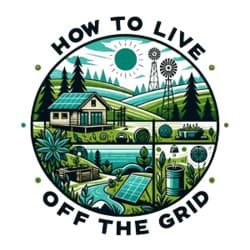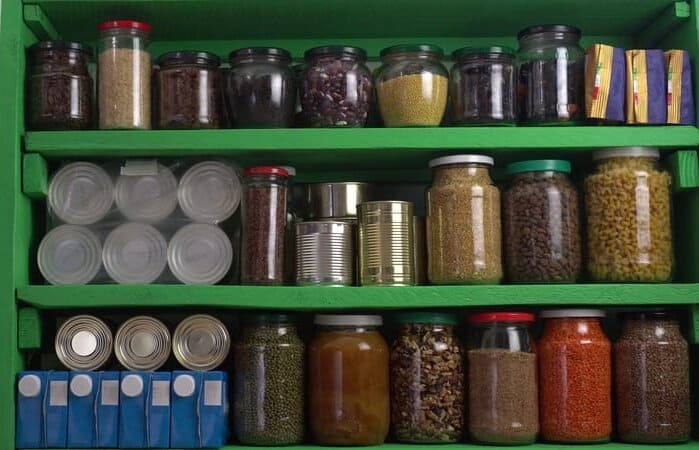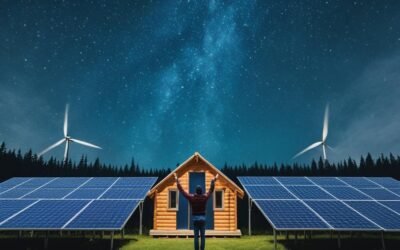What States Allow Off Grid Living?
Stats rated in their Off Grid legalitiesWhat States Allow You To Live Off The Grid
Off grid living, which involves disconnecting from public utilities like the electrical grid and municipal water and sewer, is becoming an increasingly popular lifestyle choice for Americans seeking self sufficiency, freedom from bills, and deeper connection to nature. However, across the 50 states, the legality of living off the grid can vary widely depending on local zoning laws, building codes, and state policies on alternative systems like solar power, rainwater harvesting, and composting toilets. This article provides a comprehensive state-by-state guide to off grid laws.

Defining Off Grid Living
At its core, off-grid living means not relying on municipal services for electricity, water, and waste disposal. Completely off-grid homes generate their own power, source their own water from rain or wells, and handle sewage on-site through composting or septic systems. These off grid systems allow residents to live self-sufficiently without monthly utility bills. Partially off-grid homes remain connected to some public utilities while still utilizing alternative systems like solar power to reduce reliance. Legality depends on the extent of disconnection.
Why Off-Grid Legality Matters
For off-gridders, remaining within the bounds of the law is crucial. Illegal off-grid living can lead to heavy fines, utilities being shut off, and even eviction from the property. Without the proper permits and inspections, homeowners insurance and mortgages may be difficult to obtain. And resale value takes a hit if a home was built outside of code. By understanding each state’s laws, you can make wise choices about where to establish your off-grid homestead while adhering to zoning rules and building codes.
State Laws that Impact Off Grid Living
While specific laws vary widely, there are a few key state policies that determine if off-grid living is legal and feasible:
Electricity Laws: States with “net metering” make remaining grid-connected worthwhile by paying homeowners for excess solar power generated. States permitting home microgrids allow disconnecting. Conservative states mandate grid connection.
Rainwater Harvesting Laws: Collecting rainwater reduces reliance on municipal water but some states highly restrict rain catchment. Progressives like Colorado encourage rainwater reuse.
Waste Disposal Laws: Composting toilets and septic systems allow off grid waste handling. But many states mandate sewer connections, limiting self-sufficient options.
Building Codes and Zoning: Strict zoning and building codes often require utility hook ups. More relaxed rural counties allow owner-built off grid homes.
The Best States to live for Legal Off Grid Living
The most off grid friendly states have progressive laws and incentives that make living self-sufficiently feasible and legal:
Maine – Disconnecting utilities is allowed and off grid living is promoted. Building codes are relaxed and composting toilets permitted. Low population density offers seclusion.
Oregon – Off grid electricity is allowed and incentives exist for renewables like solar. Rainwater harvesting is legal and there are fewer restrictions on owner-built homes.
Colorado – Solar incentives are strong and composting toilets, rain catchment systems, and net metering allowed in many counties. Wide-open rural spaces conducive to off grid life.
Missouri – Several established off-grid communities exist across the state. Rural areas have minimal zoning laws, permitting usually only required for septic systems.
New Mexico – State offers tax credits for off-grid solar systems. Rainwater harvesting and composting toilets are legal. Lower cost of rural land allows affordable off-grid homesteads.
The Worst States for Off Grid Legality
On the opposite end of the spectrum, these states impose legal and regulatory hurdles to living off-grid:
Alabama – Disconnecting completely from electric utilities is illegal. High fees charged for using solar power. Building codes discourage off-grid housing.
Indiana – Heavily restricted by state wide zoning laws. Utility companies have lobbied against off-grid solar. Composting toilets and rainwater harvesting prohibited in many counties.
California – Despite solar incentives, strict building codes and permitting issues make going off-grid very difficult. Alternative waste disposal methods are restricted.
New York – State laws prohibit disconnecting from electrical grid. Strict zoning and building codes prevent establishing off-grid structures in many municipalities.
Conclusion
While off-grid living is technically legal across the U.S., some states clearly make it much easier and more affordable than others. By researching state and county-level laws, finding communities embracing off-grid living, and using the right systems for power, water and waste, you can successfully disconnect from the grid and live self-sufficiently. This guide provides a starting point for understanding the legal landscape.
| State | Rating | Description |
|---|---|---|
| Alabama | 1 | Utilities disconnection illegal, high solar fees |
| Alaska | 4 | Progressive microgrid laws |
| Arizona | 1 | Utilities disconnection illegal, solar tax |
| Arkansas | 3 | Off-grid legal but permitting complex |
| California | 2 | Strict building codes, some solar restrictions |
| Colorado | 2 | Utilities disconnection restricted, rainwater laws |
| Connecticut | 3 | Microgrids allowed, some solar incentives |
| Delaware | 4 | Off-grid electricity encouraged, solar incentives |
| Florida | 3 | Off-grid legal but sewage laws restrictive |
| Georgia | 2 | Poor solar incentives, rainwater and waste laws |
| Hawaii | 4 | Off-grid common, permits attainable |
| Idaho | 3 | Relaxed wind laws but septic regulations |
| Illinois | 3 | Microgrids allowed but waste disposal restrictive |
| Indiana | 1 | Heavily restricted by zoning, utility rules |
| Iowa | 3 | Off-grid allowed with permitting |
| Kansas | 2 | Off-grid possible but limited solar incentives |
| Kentucky | 3 | Off-grid electricity legal but some waste restrictions |
| Louisiana | 3 | Off-grid electricity allowed but few solar incentives |
| Maine | 5 | Off-grid living promoted, relaxed utility laws |
| Maryland | 2 | Off-grid solar allowed but water/waste laws |
| Massachusetts | 2 | Off-grid restricted by building codes |
| Michigan | 3 | Microgrids allowed, flexible county waste laws |
| Minnesota | 3 | Off-grid electricity legal but solar policy poor |
| Mississippi | 1 | Disconnecting utilities very difficult |
| Missouri | 4 | Off-grid communities exist, flexible laws |
| Montana | 3 | Off-grid electricity allowed but water rights issues |
| Nebraska | 3 | Off-grid solar allowed with permitting |
| Nevada | 1 | Harsh laws for electricity, water, and waste |
| New Hampshire | 4 | Off-grid solar allowed, some waste exceptions |
| New Jersey | 2 | Heavily restricted waste disposal |
| New Mexico | 4 | Off-grid solar incentives, flexible waste laws |
| New York | 1 | Very strict zoning, utility, and building laws |
| North Carolina | 3 | Off-grid solar allowed but sewage laws |
| North Dakota | 3 | Off-grid electricity allowed, flexible waste laws |
| Ohio | 3 | Off-grid solar allowed in rural areas |
| Oklahoma | 2 | Off-grid solar allowed but no incentives |
| Oregon | 4 | Off-grid electricity allowed, renewable incentives |
| Pennsylvania | 2 | Off-grid restricted but some exceptions |
| Rhode Island | 2 | Off-grid electricity difficult, some solar incentives |
| South Carolina | 3 | Off-grid solar allowed with permitting |
| South Dakota | 3 | Off-grid electricity allowed with permitting |
| Tennessee | 3 | Off-grid solar allowed but waste laws |
| Texas | 3 | Off-grid solar allowed but sewage restrictions |
| Utah | 4 | Existing off-grid communities |
| Vermont | 5 | Off-grid living promoted, progressive laws |
| Virginia | 1 | Off-grid heavily restricted by waste laws |
| Washington | 4 | Existing off-grid communities, solar incentives |
| West Virginia | 3 | Off-grid electricity allowed in rural areas |
| Wisconsin | 4 | Off-grid common, flexible building codes |
| Wyoming | 3 | Off-grid solar allowed, rainwater incentives |
Here is a description of the state rating system used in the table:
In general, scores were assessed as follows:
- 5 (Excellent) – State promotes and incentivizes off-grid living with few restrictions
- 4 (Good) – Off-grid living is legal and feasible with proper permitting
- 3 (Moderate) – Off-grid is legally possible but subject to complex regulations
- 2 (Poor) – State has legal and regulatory hurdles severely limiting off-grid options
- 1 (Very Poor) – State has laws making off-grid living effectively illegal
This rating system provides a high-level overview of where each state stands on off-grid legality. Specific county and municipal laws may still apply.
Specifically, the following factors were considered:
- Laws about disconnecting from electrical, water and sewage utilities
- Building codes and zoning rules
- Restrictions on off-grid power sources like solar and wind
- Rainwater harvesting and greywater reuse laws
- Allowances for composting toilets and other off-grid waste disposal
- Incentives for renewable energy and off-grid living
States that prohibit disconnecting from utilities, have strict building codes requiring hookups, and restrict alternative off-grid services received poor scores of 1-2.
States with progressive laws allowing home microgrids, net metering, rainwater harvesting, and composting toilets received high scores of 4-5.
Most states fell in the middle with scores of 3, where off-grid living is legal but subject to permits and inspections.
















